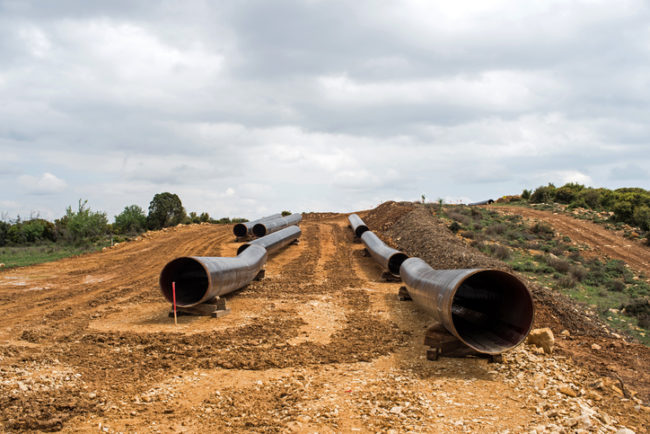Building a pipeline is never easy. From planning the route to restoring the pathway, the entire process requires meticulous care, hard work, and even a little luck. These days, the process is more difficult than ever, thanks to the dedicated ingenuity of environmental groups that make it their mission to erect as many regulatory hurdles as possible for pipeline developers.
The most recent example of environmental groups’ success in this arena came last week, when the United States Court of Appeals for the Fourth Circuit invalidated a Fish and Wildlife Services permit allowing developers of the $5 billion Atlantic coast natural gas pipeline to injure certain endangered and threatened species during construction. According to the court, “the limits set by the agency are so indeterminate that they undermine the Incidental Take Statement’s enforcement and monitoring function under the Endangered Species Act.”
The Fourth Circuit’s order was only partial — several issues remain to be decided in the environmental groups’ challenge. For example, the groups have challenged the National Park Service’s right-of-way for the Atlantic Coast Pipeline. Moreover, the case currently before the Fourth Circuit is not the only effort underway to stop the pipeline. There is, of course, a challenge to the Federal Energy Regulatory Commission’s overall approval for the pipeline. There are challenges before the Bureau of Land Management, the U.S. Forest Service, and Virginia environmental regulators who issued permits under the Clean Water Act. And there is a case pending in North Carolina alleging that the state’s Department of Environmental Quality violated Title VI of the Civil Rights Act of 1964 when issuing water, air, and other permits for the Atlantic Coast Pipeline. According to that lawsuit, the pipeline will have a disproportionate effect against African-American and Native American communities along its path.
It has long been clear that pipeline construction has a substantial legal component, especially in the environmental field. As pipeline projects get introduced the legal component has been ramped up more than ever lately as the number of required permits increases and the number of ways to challenge those permits multiplies.

